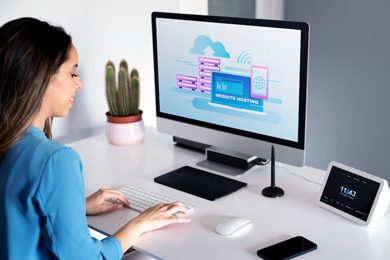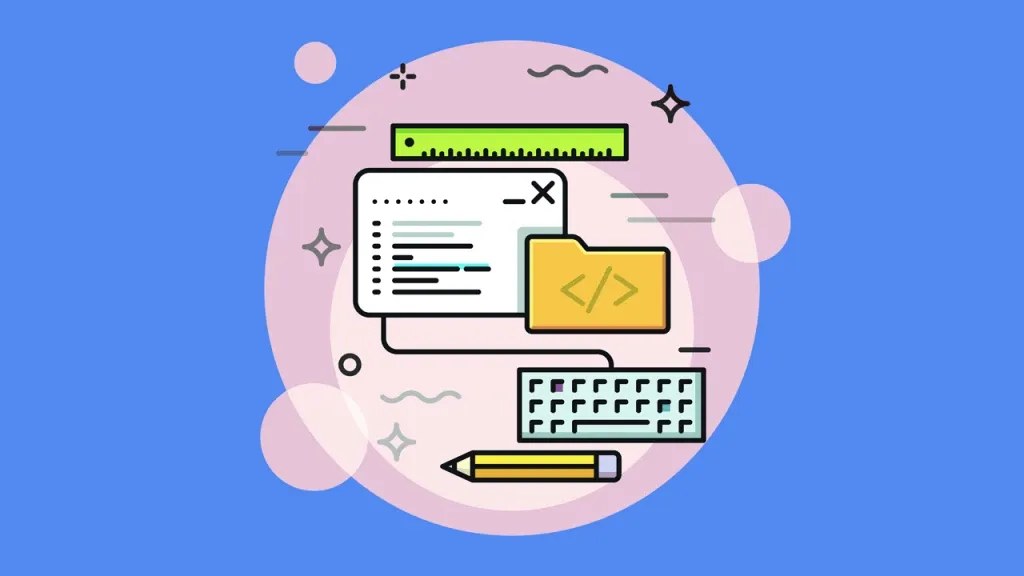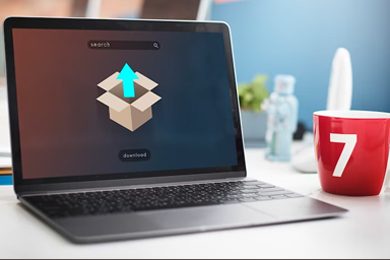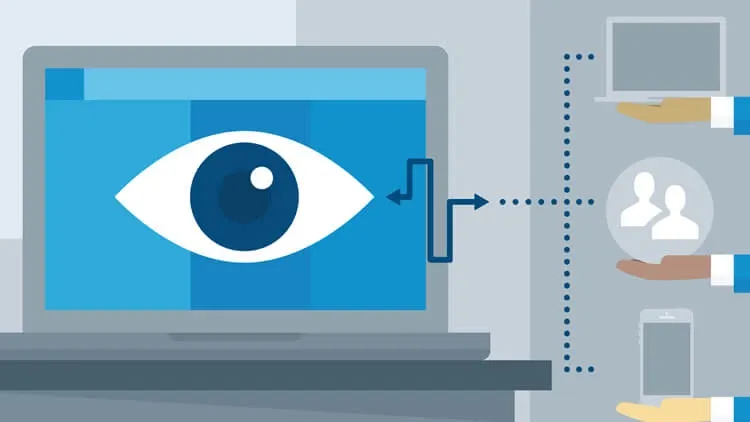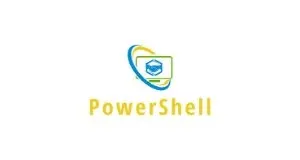This plan includes
- Limited free courses access
- Play & Pause Course Videos
- Video Recorded Lectures
- Learn on Mobile/PC/Tablet
- Quizzes and Real Projects
- Lifetime Course Certificate
- Email & Chat Support
What you'll learn?
- Computer and Networking Basics
- Windows Server 2022 Operating System
- Windows System administration
- Active Directory
- System Administrator
Course Overview
This Course is primarily designed for anyone who is interested in System Administration.
Why this Windows Server System Administration Course?
1. Demand for skilled professionals in the field: Companies around the world rely on servers running the Windows operating system to support their business operations. As a result, there is a high demand for professionals who are proficient in managing and maintaining these systems.
2. Career advancement opportunities: By learning the Windows Server operating system, you can position yourself for advancement in your current job or open up new career opportunities in fields such as system administration, network engineering, and cloud computing.
3. Comprehensive course content: This course should provide a thorough overview of the Windows Server operating system, including topics such as installation, configuration, management, and troubleshooting. This will give you the skills and knowledge you need to confidently work with these systems in a professional setting.
4. Expert instructors: The course should be taught by experienced professionals who have real-world experience working with the Windows Server operating system. This will ensure that you are learning from experts who can provide valuable insights and guidance.
5. Hands-on learning: In addition to lectures and demonstrations, the course should provide opportunities for hands-on learning, such as lab exercises and case studies. This will give you the chance to apply what you have learned and gain practical experience working with the Windows Server operating system.
After completing it you will be a System Administrator ( Level 2 Administrator) and you can manage Windows Server Operating Systems like Windows Server 2022, Windows Server 2019, Windows Server 2016 and Windows Server 2012.
Testimonials:
"This course is very helpful for me as i was searching for videos to update my knowledge. Well Explained, Thank You" -Mohd A.
" One of the best lecturers. He used to present the lectures very nicely and the way of conducting classes was impressive. Very knowledgeable and cooperative . He is good at explaining in a very understandable way. The notes provided are precise. He is always reachable even after the class /course and eager to help if there is any doubt" - Sharmin Akhter
"I have been trained CCNA course by Mohammed. He has the ability to explain complex concepts in a simple and understandable way. Admired by his technique when performing Practical Labs and Troubleshooting the issues. I will look forward to learn more from him in future "- Ramesh S
TOPICS:
-
What is Computer?
-
Computer Generations.
-
Computer Components.
-
What are Networks and Networking?
-
Network Devices and their functionalities.
-
What is an Operating System?
-
Windows Server 2022 Installation
-
Windows 10 Installation
-
IP Addressing
-
Physical and Logical topologies
-
Active Directory
-
Domain Controller
-
Joining clients to the domain
-
User Management
-
Editing Default Password Policy
-
Account Lockout Policy
-
Restricting Users
-
Groups
-
Giving Administrator Rights To Users
-
Partition
-
Security Level Permission
-
Share Level Permission
-
Local Profile
-
Roaming Profile
-
Home Folder
-
FSRM
-
Organization Unit
-
Delegation
-
Additional Domain Controller
-
Tree
-
Forest
-
Active Directory Roles
-
Transfer Of Roles
-
Seize Of Roles
-
Group Policy
-
OU Level Group Policy
-
Domain-Level Group Policy
-
Site Level Group Policy
-
Group Policy Modeling
-
Group Policy Backup and Recovery
-
Applying Scripts Using Group Policy
-
Trust and Its Types
-
Active Directory Partitions
-
Global Catalog
-
Sites
-
DHCP
-
DNS
-
IIS
-
Remote Desktop Service
-
Remote Access Service
-
FTP etc.
Pre-requisites
- Students should know how to use the Personal Computer (Desktop or Laptop)
Target Audience
- This course is designed for beginners who are interested in a career as a networking professional.
- Freshers who want to start the career in System Administration
Curriculum 166 Lectures 09:21:49
Section 1 : Introduction
- Lecture 2 :
- Introduction
Section 2 : Windows Server 2022 OS Features
- Lecture 1 :
- 64 Bit Operating System
- Lecture 2 :
- Advanced Multilayer Security
- Lecture 3 :
- Cloud Infrastructure
- Lecture 4 :
- Hybrid Capabilities With Azure
- Lecture 5 :
- Improved Server Manager
- Lecture 6 :
- Supports GUI and CLI OS
- Lecture 7 :
- Active Directory
- Lecture 8 :
- Group Policy Management Console
- Lecture 9 :
- Disk Quota
- Lecture 10 :
- Backup and Recovery
- Lecture 11 :
- DNS
- Lecture 12 :
- IIS
- Lecture 13 :
- Virtualization
- Lecture 14 :
- Windows Deployment Service
- Lecture 15 :
- Dynamic Host Configuration Protocol
Section 3 : About Computer
- Lecture 1 :
- Computer Definition
- Lecture 2 :
- How Computers Work
- Lecture 3 :
- Computer Architecture
- Lecture 4 :
- Father Of Computer
Section 4 : Computer Generations
- Lecture 1 :
- First Generation Computer
- Lecture 2 :
- Second Generation Computer
- Lecture 3 :
- Third Generation Computer
- Lecture 4 :
- Fourth Generation Computer
- Lecture 5 :
- Fifth Generation Computer
Section 5 : First Mainframe Computer and Personal Computer of IBM
- Lecture 1 :
- First Main Frame Computer
- Lecture 2 :
- First Personal Computer
- Lecture 3 :
- Frist IBM PC
- Lecture 4 :
- Operating System For First IBM PC
Section 6 : Computer Components
- Lecture 1 :
- List Of Computer Components
- Lecture 2 :
- Input Device
- Lecture 3 :
- Output Device
- Lecture 4 :
- Processor
- Lecture 5 :
- Processor Speed
- Lecture 6 :
- Processor Width
- Lecture 7 :
- Processor FSB
- Lecture 8 :
- Processor Cache Memory
- Lecture 9 :
- Processor Virtualization
- Lecture 10 :
- Processor Core
- Lecture 11 :
- Processor Generation
- Lecture 12 :
- Processor Manufacturers
- Lecture 13 :
- Moher Board
- Lecture 14 :
- Storage
- Lecture 15 :
- Primary Storage RAM vs ROM
- Lecture 16 :
- RAM Types
- Lecture 17 :
- Secondary Storage
- Lecture 18 :
- Hard Disk
- Lecture 19 :
- Tape Drive
- Lecture 20 :
- Optical Storage
- Lecture 21 :
- Flash Storage
- Lecture 22 :
- HDD V/S SDD
- Lecture 23 :
- Computer Components -SMPS
Section 7 : Networking
- Lecture 1 :
- Network and Networking
- Lecture 2 :
- Network Types
- Lecture 3 :
- Local Area Network (LAN)
- Lecture 4 :
- Metropolitan Area Network (MAN)
- Lecture 5 :
- Wide Area Network (WAN)
- Lecture 6 :
- Personal Area Network (PAN)
- Lecture 7 :
- Campus Area Network (CAN)
Section 8 : Requirements to set up a Network
- Lecture 1 :
- List of requirements to setup a network
- Lecture 2 :
- End Devices
- Lecture 3 :
- Media
- Lecture 4 :
- Guided Media
- Lecture 5 :
- Unguided Media
- Lecture 6 :
- 6 Network Interface Card (NIC) and MAC address
- Lecture 7 :
- Switch
- Lecture 8 :
- Access Point
- Lecture 9 :
- WLC
- Lecture 10 :
- Router
- Lecture 11 :
- Firewall
- Lecture 12 :
- IP Phone
- Lecture 13 :
- Broadband Wireless Router
Section 9 : About Windows Server 2022 Operating System
- Lecture 1 :
- What is an Operating system
- Lecture 2 :
- Windows Server 2022 Editions
- Lecture 3 :
- Hardware requirements to Install Windows Server 2022 OS
- Lecture 4 :
- Different Ways To Install The Operating System
- Lecture 5 :
- Computer Specifications For Lab and Verification
- Lecture 6 :
- Software requirement
- Lecture 7 :
- How to download Windows Server ISO image
- Lecture 8 :
- Download and Install VMWare Workstation
- Lecture 9 :
- How to create the virtual machine
Section 10 : How to Install the Windows Server 2022 Operating System
- Lecture 1 :
- Windows Server 2022 Operating System Installation
Section 11 : IP Addressing
- Lecture 1 :
- What is an IP Address
- Lecture 2 :
- What is IPv4
- Lecture 3 :
- What is IPv6
- Lecture 4 :
- Converting Binary numbers to Decimal
- Lecture 5 :
- How to assign an IP address
- Lecture 6 :
- Assigning the IP address
- Lecture 7 :
- Octet Range
- Lecture 8 :
- IP Address Classes
- Lecture 9 :
- Communication Types - Unicast, Broadcast and Multicast
- Lecture 10 :
- Network and Host Portions
- Lecture 11 :
- How to design the IP addressing
- Lecture 12 :
- What is Network ID and Broadcast ID
- Lecture 13 :
- Subnetmask04
- Lecture 14 :
- How to verify the IP address
- Lecture 15 :
- Public IP Address vs Private IP Address
Section 12 : Topology
- Lecture 1 :
- What is a Topology
- Lecture 2 :
- Physical Topology
- Lecture 3 :
- Bus Topology
- Lecture 4 :
- Ring Topology
- Lecture 5 :
- Star Topology
- Lecture 6 :
- Logical Topology
- Lecture 7 :
- Workgroup Model
- Lecture 8 :
- Domain Model
Section 13 : Domain Controller (DC)
- Lecture 1 :
- Difference Between Domain and Domain Controller
- Lecture 2 :
- Requirements to install the Domain Controller
- Lecture 3 :
- Terminologies
- Lecture 4 :
- Lab Overview
- Lecture 5 :
- Verify if the Server is in Workgroup
- Lecture 6 :
- Configuring IP address and PDNS
- Lecture 7 :
- Installing Active Directory Domain Services (ADDS)
- Lecture 8 :
- Promoting the Server to a Domain Controller (DC)
- Lecture 9 :
- Verification
Section 14 : Clients In Domain Model
- Lecture 1 :
- Installing Member Server and Workstation
- Lecture 2 :
- Member Server VS Workstation
Section 15 : User Management
- Lecture 1 :
- User Management | Editing Password Policy
Section 16 : Permission
- Lecture 1 :
- Permissions
Section 17 : Administrator rights to users
- Lecture 1 :
- Assigning Administrator rights to users
Section 18 : Security Level Permissions
- Lecture 1 :
- What Is Security Level Permissions
- Lecture 2 :
- Creating Files and Folders
- Lecture 3 :
- Partitions14
- Lecture 4 :
- Removing Default Permissions
- Lecture 5 :
- User With Read Permission
Section 19 : Shared Folder
- Lecture 1 :
- Shared Folder In Detail
Section 20 : Profiles
- Lecture 1 :
- Local User Profiles
- Lecture 2 :
- Roaming User Profiles
Section 21 : FSRM
- Lecture 1 :
- What is FSRM
- Lecture 2 :
- Storage Quota Management
- Lecture 3 :
- File Screening Management
- Lecture 4 :
- Storage Reports Management
Section 22 : Organizational Unit (OU)
- Lecture 1 :
- What is an Organizational Unit (OU)
- Lecture 2 :
- Delegation
- Lecture 3 :
- Delegation LAB
Section 23 : Additional Domain Controller (ADC)
- Lecture 1 :
- What is an Additional Domain Controller (ADC)
- Lecture 2 :
- Additional Domain Controller (ADC) Installation
Section 24 : Tree
- Lecture 1 :
- What is a Tree
- Lecture 2 :
- NDEF Lab
Section 25 : Forest
- Lecture 1 :
- What is a Forest
Section 26 : Active Directory Roles
- Lecture 1 :
- What are Active Directory Roles
- Lecture 2 :
- Transfer Of Roles
- Lecture 3 :
- Seize Of Roles
Section 27 : Trust
- Lecture 1 :
- What is trust
- Lecture 2 :
- Trust Lab
Section 28 : Active Directory Partitions
- Lecture 1 :
- What Are Active Directory Partitions
Section 29 : DHCP
- Lecture 1 :
- What is DHCP
- Lecture 2 :
- How to install DHCP
- Lecture 3 :
- Installing DHCP
- Lecture 4 :
- DHCP Configuration
- Lecture 5 :
- DHCP Reservation
Section 30 : DNS
- Lecture 1 :
- What is DNS
- Lecture 2 :
- Internal DNS
- Lecture 3 :
- External DNS
- Lecture 4 :
- Root DNS
- Lecture 5 :
- DNS Installation
- Lecture 6 :
- DNS ZONES
- Lecture 7 :
- DNS Records
Section 31 : IIS
- Lecture 1 :
- What is IIS
- Lecture 2 :
- Hosting a Website
- Lecture 3 :
- Redirect and Virtual Directory
Section 32 : Remote Desktop Service (RDS)
- Lecture 1 :
- Remote Desktop Service With Lab
Section 33 : Remote Access Service (RAS)
- Lecture 1 :
- What is Remote Access Service (RAS)
- Lecture 2 :
- Remote Access Service (RAS )Lab
Section 34 : Backup and Recovery
- Lecture 1 :
- What is Backup and Recovery With Lab
Section 35 : Network Load Balancing
- Lecture 1 :
- Network Load Balancing (NLB) With Lab
Our learners work at
Frequently Asked Questions
How do i access the course after purchase?
It's simple. When you sign up, you'll immediately have unlimited viewing of thousands of expert courses, paths to guide your learning, tools to measure your skills and hands-on resources like exercise files. There’s no limit on what you can learn and you can cancel at any time.Are these video based online self-learning courses?
Yes. All of the courses comes with online video based lectures created by certified instructors. Instructors have crafted these courses with a blend of high quality interactive videos, lectures, quizzes & real world projects to give you an indepth knowledge about the topic.Can i play & pause the course as per my convenience?
Yes absolutely & thats one of the advantage of self-paced courses. You can anytime pause or resume the course & come back & forth from one lecture to another lecture, play the videos mulitple times & so on.How do i contact the instructor for any doubts or questions?
Most of these courses have general questions & answers already covered within the course lectures. However, if you need any further help from the instructor, you can use the inbuilt Chat with Instructor option to send a message to an instructor & they will reply you within 24 hours. You can ask as many questions as you want.Do i need a pc to access the course or can i do it on mobile & tablet as well?
Brilliant question? Isn't it? You can access the courses on any device like PC, Mobile, Tablet & even on a smart tv. For mobile & a tablet you can download the Learnfly android or an iOS app. If mobile app is not available in your country, you can access the course directly by visting our website, its fully mobile friendly.Do i get any certificate for the courses?
Yes. Once you complete any course on our platform along with provided assessments by the instructor, you will be eligble to get certificate of course completion.
For how long can i access my course on the platform?
You require an active subscription to access courses on our platform. If your subscription is active, you can access any course on our platform with no restrictions.Is there any free trial?
Currently, we do not offer any free trial.Can i cancel anytime?
Yes, you can cancel your subscription at any time. Your subscription will auto-renew until you cancel, but why would you want to?
Instructor

11179 Course Views
3 Courses



 Tech & IT
Tech & IT
 Business
Business
 Coding & Developer
Coding & Developer
 Finance & Accounting
Finance & Accounting
 Academics
Academics
 Office Applications
Office Applications
 Art & Design
Art & Design
 Marketing
Marketing
 Health & Wellness
Health & Wellness
 Sounds & Music
Sounds & Music
 Lifestyle
Lifestyle
 Photography
Photography




